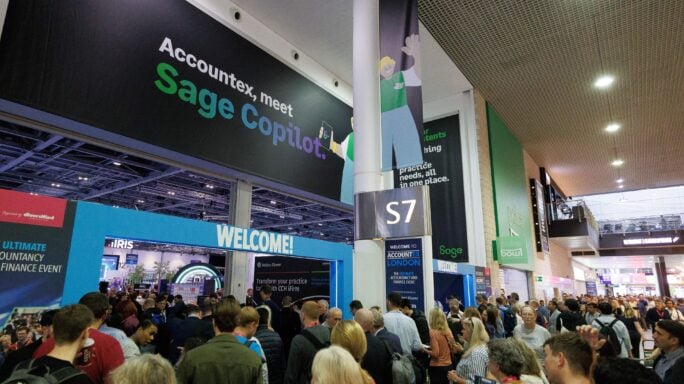How accountants can work efficiently with ledger-less clients
How can accountants work efficiently with clients who don't use a ledger? New, more effective ways, are emerging, including accounts preparation software.

A huge challenge for many accountants is clients who don’t use a digital ledger, cheerfully leaving them with the time-sapping task of manually entering and reconciling financial data line by line.
Many clients still need this “do it for me” service, but fortunately there are an increasing number of ways to work more efficiently with them, including new software solutions that ease the accounts preparation process.
These efficiencies can help you save significant time, reduce errors, and provide more value-adding services.
How many clients don’t use ledgers?
Most accountants are familiar with the problem of having to wade through reams of paper or downloaded bank statements, invoices, and receipts from clients who don’t use a ledger.
In a quick survey for this article, only one firm said they don’t work with such clients. For the others, ledger-less businesses still comprise 10% to 35% of the client base.
These tend to be sole traders or early-stage businesses, in industries such as property rental, dentistry, and the trades. They tend to be cost sensitive and have fewer transactions, and so feel less need for accounting software.
But many accountants love working with such clients and don’t want to stop—they just need more efficient ways of servicing them.
Impacts of Making Tax Digital
Self-employed individuals and landlords earning over £50,000 will need to keep digital records in compliance with Making Tax Digital (MTD) for Income Tax Self-Assessment (ITSA) from April 2026.
But even when they have a digital record-keeping solution, some firms still don’t use it because they haven’t the time or the knowledge, or still prefer you to compile, reconcile, and analyse the records for them.
So, this issue will likely continue post-2026, and it’s critical to keep looking for ways to process “do it for me” clients’ data more quickly and accurately.
David Burr, director at Carroll Accountants, says: “Servicing clients with no ledger takes us more time as we need to produce manual cashbooks and extended trial balances. We need to increase our fees for these jobs.”
Alex Manley, business services manager at Albert Goodman (AG), adds that using manual records creates more work due to the need to analyse them before putting them through accounts or tax software.
“Often there are errors in manual records, and we need to spend time reconciling the accounts and identifying differences,” she says. “This added time means our fee is generally higher than it would be if they used bookkeeping software.”
Chasing lost data “like opening Russian dolls”
Bani Lamba, data analytics and tech manager at the Institute of Chartered Accountants in England and Wales (ICAEW), says one reason some clients are reluctant to use cloud-based ledgers is misconceptions about how cloud technology works—for example, around data storage, privacy, and protection.
Some also believe adoption will be inefficient and time-consuming, but don’t realise the time and efficiency savings that can outweigh this, adds Bani.
Ben Sztejka, managing director of Your Ecommerce Accountant, says his ledger-less clients are mostly early-stage, bootstrapping clients looking to save costs on software. “These clients often leave it to the year end to process the information, making it harder for us to monitor their turnover and give them proactive advice,” he says.
“For example,” Ben adds, “if they are close to the VAT threshold, we may not have been able to warn them about the need to register and advise them on pricing in time. Or if they’re making a loss—due to pricing or expenditure mistakes—again they may not realise until the year end.
“It also means you’re more likely to have incomplete data and it can be like a Russian doll, trying to dig into accounts to find the right information and figure out which money has moved where.”
The problem is made worse when clients have multiple bank accounts, for example foreign currency accounts, savings accounts, and credit cards.
Ben looks to increase efficiency with these clients by ensuring they send his team the right information throughout the year, including all previous accounts, bank statements, and any workings. He recommends being precise and explicit about what information you need and in what format.
Yogesh Dhanak, senior technical advisory manager at the Association of Chartered Certified Accountants (ACCA) UK, agrees adding: “Communication is the biggest asset here—training and communicating with clients on how to keep the best and most accurate financial records will benefit you both.”
Graham Cantlay, a partner at Robb Ferguson, has another solution—where appropriate, he provides ledger-less clients with templates to complete and in which they can undertake the required analysis themselves.
The benefits of cloud software
Many accountants will try to solve the problems of error-prone, fragmented data by persuading ledger-less clients to adopt a full accounting software system with linked bank accounts.
Ben says this helps save time on requesting information and allows his firm to look at clients’ accounts holistically, to identify any issues or offer advice.
“Accounting software with bank feeds also solves the problem of potentially incomplete information because the clients haven’t kept full records throughout the year,” he says.
Albert Goodman also encourages clients to consider a cloud accounting solution, explaining the benefits of seeing how the business is performing, keeping on top of their finances, and paying reduced accountancy fees, even when software subscriptions are factored in.
“Sophisticated software solutions can also cross-check and validate data entries, allowing for greater precision,” says Alex. “This increased accuracy improves the reliability of financial reports and enhances regulatory compliance, reducing the risk of costly errors and audits.”
OCR and accounts preparation solutions
But whatever you do, some clients will still resist full accounting software.
For these, Robb Ferguson uses optical character recognition (OCR) software from AutoEntry. This scans and captures data from invoices, receipts, and bank statements by converting them to a CSV or Excel file. This software has significantly improved efficiency, says Graham.
Automatic cashbook solutions such as AccountsPrep, an add-on to AutoEntry, enhance this technology further.
AccountsPrep is ideal for simple, “do it for me” clients. It allows you to prepare annual accounts in arrears, saving time on manual entry and displacing Excel-based preparation.
After uploading bank statements into AutoEntry, you import the data to AccountsPrep where it is reviewed, updated, and fast-coded to a chart of accounts. The trial balance created can then be imported to your chosen final accounts solution.
AutoEntry subscription includes unlimited client companies, which is crucial as accountants have found other solutions that charge per user to not be as cost effective.
More benefits of accounts preparation solutions
Albert Goodman has used cloud-based accounts preparation solutions to help reduce manual effort, increase accuracy, and allow data to feed directly into its accounts package.
It also allows for rules that reconcile transactions in bulk based on the same payee—for example, all BT costs would be allocated to “telephone”. This requires some initial setup work, but will save time in future, says Alex.
Using cloud-based accounts preparation software also:
- increases consistency, by reducing the idiosyncratic aspects of client records.
- frees team members to carry out valuable business advisory work, within existing fees.
- allows AG instant access to data to help resolve any issues.
The time saving can be huge. For example, AccountsPrep can cut a full working day for “do it for me” clients into just 60 minutes. This makes the small subscription costs well worth it and allows you to maintain a competitive charge with these clients.
Jo Gibson, a business services partner and head of Hurst’s specialist digital team, says another benefit is having a proper audit trail of business transactions in case of HMRC inspection, or due diligence needs for fundraising or a business sale.
Capturing and organising records efficiently now could make a huge difference in the future, so don’t just think about your client’s current needs but how they want to progress.
With all these benefits together, accounts preparation solutions can significantly increase the overall value of your service, and strengthen client relationships and trust.
Final thoughts—room for improvement
Despite the advent of Making Tax Digital, the “do it for me” approach will continue for many clients, and this cohort will benefit hugely from solutions that can help process data more quickly and accurately.
As we’ve seen, there are many ways you can work with these clients to increase efficiency, and fairly-priced cloud accounts preparation solutions can play a key part in both yours and your client’s happiness and peace of mind.





Ask the author a question or share your advice